On August 19, 2019, Matthew George decided he had enough of the litter lining Germantown’s streets.
He created a GoFundMe campaign for a trash-can program he called “I ♥ Thy Hood.” He reached out to his neighbors in the hopes that he could raise enough money to buy 10 44-gallon trash cans for the neighborhood.
“I definitely got fed up,” George says. He felt responsible for the litter he kept seeing on his drive home. “This trash wasn’t my trash, but at the end of the day it was my trash,” he says.
In his post, George admitted that he, too, used to litter because he saw trash already on the ground, and his environment had influenced his actions. To combat this learned behavior, he proposed that if Germantown made trash cans more accessible, residents wouldn’t throw as much trash on the ground. George knew each 44-gallon trash can would cost $50, so he set the original GoFundMe goal for $500. The response from his community took him by surprise. In just 24 hours, he’d raised $690 dollars. Since the creation of the campaign, George has raised over $4,000 for I ♥ Thy Hood, far surpassing his original goal.
Shortly after the donations came pouring in, George got to work planning out the next steps to put I ♥ Thy Hood in motion.
“I canvassed the area within that week,” George says.
He reached out to business owners in Germantown to better understand trash pickup and street cleaning in the area. Through these conversations, George uncovered a major reason why street trash cans were not being emptied and why litter was building up. Many of the over-full wire trash receptacles in Germantown are emblazoned with the words Germantown Special Services District (GSSD), a defunct neighborhood organization. The GSSD was in charge of keeping Germantown Avenue litter-free from 1995 until 2011 when it ceased operations. In 2013, the GSSD was revived by Councilwoman Cindy Bass. Like special services districts in other Philadelphia neighborhoods, it funded the majority of its budget by collecting fees from local businesses.
In 2019, Germantown business owners voted to block the GSSD from reauthorizing, which meant that the trash cans they provided were not being maintained.
“The service was terminated because the funds weren’t being allocated properly,” George says. George was frustrated by the overflowing GSSD trash cans, even posting pictures of them on the I ♥ Thy Hood’s Instagram page, @ilovethyhood. He found it hard to get answers about who was now responsible for cleaning the cans out.
“Ready Willing & Able were previously responsible for picking up the GSSD trash,” George says. A contract between the GSSD and Ready Willing & Able required the cans to be emptied three times a week, but once the GSSD dissolved, George noticed that the cans were not being emptied frequently.
According to Scott McGrath, environmental planning director for the Philadelphia Streets Department, when a special services district stops operation, Streets workers will either fill in for trash pickup or remove the trash cans if trash pickup is not possible.
“In some cases we’ll either remove the containers or provide collections ourselves,” McGrath says. “In some cases we can fill the void until the community can get something up and running.”
The frustration George felt about the GSSD trash cans served as another reason why I ♥ Thy Hood is invaluable.
“Our city says we’re supposed to have these resources, but where are they?” Bria Howard, co-founder of I ♥ Thy Hood and George’s fiancée, says.
Both George and Howard believe that the overflowing trash cans in Germantown create an environment where residents don’t think twice about littering.
In addition to the overflowing cans, George also noticed an abundance of litter and a lack of trash cans in front of fast-food businesses in Germantown. With food wrappers and to-go boxes from McDonald’s, Wendy’s and Dunkin’ Donuts, copious amounts of packaging gathered in the street.
Residential areas are hurt by the trash generated by these businesses, George says.
In 2015, Philadelphia passed a law that requires all businesses selling to-go food to have a trash can within 10 feet of the business entrance during hours of operation. Though this law has been in effect for 5 years, businesses do not always follow it.
According to McGrath, “If a resident has a problem with a business that is not complying, they can call 311. One of our SWEEP [Streets & Walkways Education and Enforcement Program] officers will come out and inspect.”
Officers meet with business owners and may issue citations if businesses are not complying with the law. McGrath notes that during COVID-19, response rates from the Streets Department may be slower than usual, but calling 311 is the best way to alert the city to any persistent trash problems.
George and Howard believe the litter they see in their communities is caused by a lack of access to trash cans and that the answer to less litter is more trash cans, serviced more frequently—not fewer.
“Some people’s logic is that if you put more trash cans out there will be more litter,” Howard says. “What kind of logic is this? If you didn’t have a trash can in your home, where would you put your trash?” Most homes have a trash can in multiple rooms, which keeps homes cleaner by giving residents multiple options for disposing of their waste. According to Howard, this would work the same way on city streets.
Howard’s idea is backed up by data.
In 2011, New York City launched a study to determine if a lack of cans would reduce litter. In the first phase of the study, trash cans were removed from two subway stations. In the early stage of the study, litter appeared to decrease. However, litter increased dramatically after the experiment was expanded and cans were removed from 39 subway stations. The experiment was abandoned completely in 2017 and the cans were reinstalled.
That same year, to determine how trash-can availability would affect littering in Philadelphia, GovLabPHL and the Zero Waste and Litter Cabinet created the 2017 Trash Receptacle Placement Study. At the time there was an “area of pretty active discussion about whether trash receptacles should be reduced,” Crystal Reeck, collaborator for the study, says. Other cities and government officials had responded positively to the NYC study when it first launched, but “the outcome from removing cans had been overlooked,” Reeck says.
The study focused on MLK Recreation Center, Powers Park, Athletic Square Park and Campbell Square Park, as well as the Francisville, Fairmount and North Broad Renaissance commercial districts. The three conditions of the study were: no change in number of trash receptacles, increased availability of waste receptacles and decreased availability of waste receptacles. The period of no change in receptacles was considered the control for each location.
During each condition of the study, researchers measured the amount of trash collected from receptacles, the percent of trash collected as litter, total staff hours spent cleaning trash and any changes in the litter index for each site.
The study findings were dramatic.
When the number of trash cans remained unchanged, 39.37 percent of trash in the Francisville corridor was collected as litter, but once the number of receptacles was decreased, the percentage of trash collected as litter jumped to 95.84 percent. In Powers Park, there was a 13.1 percent increase in litter when the number of cans was decreased. The average amount of staff time spent cleaning also increased. When the number of trash receptacles decreased, staff time spent cleaning increased by an average of 0.4 hours each day.
Reeck notes that increasing the number of trash cans in public areas “makes economic sense. Deploying more receptacles saved employees’ time.”
In addition to these data sets, the 2017 study also included responses they received from some Philadelphians, who were bothered by the decrease in trash cans in their neighborhoods. Several Philadelphians wrote furious social media posts directed at the Streets Department. Others placed dog waste in a USPS mailbox to express their anger about the missing trash cans.
The responses were “not something we had planned on collecting. There were some really strong responses,” Reeck says. “The communities had a strong preference for more trash cans.”
George and Howard have noticed a similar desire for more trash cans in their community. Neighbors and local business owners immediately started requesting trash cans for heavily trafficked streets. George bought more than 20 orange trash cans from Home Depot for commercial streets in Germantown, West Philadelphia and North Philadelphia.
The white decal on the cans was designed by George and printed by Germantown Bike Supply. The eye-catching cans help attract residents’ attention, making them more likely to use them. Howard says the bright color “brings a sense of community.” The cans also serve as an advertisement for I ♥ Thy Hood.
In November, Howard found another way to call attention to the work George was doing. While browsing her email inbox, she noticed a new email from Omaze, an online fundraising platform, about the Standing O Award. The contest was open to any organization or individual who was making a difference in their community. Howard immediately nominated George. She had her friends and family nominate him as well.
“I had this theory that if I wrote in and got all my friends to write in, maybe they would notice,” Howard says.
Her plan paid off. On December 3, 2019, George learned he had won. The Standing O Award prize included $5,000 and a short video on the Omaze YouTube channel explaining his initiative. In the video, George shows the work he puts in to keep the trash cans clean. Often, the cans have to be emptied out every two days. George carries the bags of trash, which can be 10 or more pounds, on his bike and deposits them in the nearest dumpster.
The video has brought quite a bit of community attention to I ♥ Thy Hood. According to Howard, since the video was posted many people have come up to George and said, “Oh, you’re responsible for the orange trash cans!”
The Standing O Award prize did not just spread the word about I ♥ Thy Hood. It also gave George the opportunity to expand his vision and begin donating trash cans to local businesses. Howard and George first began reaching out to businesses “that we feel are also doing their part in giving back to the community,” Howard says.
They focused on businesses in high-foot-traffic areas or businesses that appeared to be struggling with littering outside their storefronts. Howard and George found it was easy to first reach out to businesses that they frequented, which made it easier to build rapport. The response they got was overwhelmingly positive. Over time, George was supplying business after business with cans of their own.
“I was pulling up on businesses saying this is yours, make sure it is empty,” George says. He provided business owners with cans, trash bags and locks to keep the cans secure. In exchange, business owners agreed to keep the cans clean.
Sue Quinn, owner of Bargain Thrift Center, has noticed the difference the I ♥ Thy Hood trash can has made on litter outside her store. George first reached out to her through Instagram. She already knew him as a regular customer and was immediately interested in getting a can of her own.
“He asked for permission to help set up the trash can and trash bags and attached it to the fence outside,” Quinn says. Bargain Thrift Center has been on Germantown Avenue since 1985. It’s near several churches, an elementary school and along the route of the 23 bus, all of which adds up to constant pedestrian activity, and lots of trash.
“The I ♥ Thy Hood can is sidewalk visible,” Quinn says. She notices that much of the trash is made up of food waste, such as wrappers or takeout containers. Before Quinn received the can from George, she had one can for the store, but it didn’t seem to be enough. Now, both cans fill up quickly and keep the street clean.
“It has been a marked difference,” Quinn says. She considers George’s initiative to be deceptively simple. “Your surroundings affecting you is such a seemingly simple idea. I had always complained about trash but I’d never done anything besides sweeping the sidewalk.” Now she has the tools to combat litter on a daily basis.
Carly Mayer, co-owner of jewelry store Forge & Finish, is also happy with the new I ♥ Thy Hood trash can outside her home in Germantown. She received her can a few weeks ago and can already see a difference while she works from home.
“I live between two bus stops and a train stop and there is a lot of commuter traffic and an apartment building across the street from my home. Having the can has definitely made a difference. It was filled within a week. It’s bright orange and hard to miss, so no excuses can be made,” Mayer says.
George has also donated cans to The Random Tea Room, Hafiz Sisters Beauty Supply, Attic Brewing Company and Philadelphia Hair Company, among others, and George and Howard plan to begin providing trash cans to schools in the near future. They also hope to expand to other neighborhoods “that don’t seem to be supported by the city,” Howard says.
In February, George spoke at West Catholic Preparatory High School, sharing the mission of I ♥ Thy Hood with its students. He considers education a central part of fighting back against littering. He and Howard have noticed parents littering in Germantown, which they believe sends a message to children that littering is acceptable.
“Parents’ behaviors inadvertently teach kids to litter. I wanted to educate the youth to prevent that,” George says.
Though COVID-19 has delayed some of George and Howard’s plans, considering how quickly I ♥ Thy Hood got up and running, the group does not show any signs of slowing down.
I ♥ Thy Hood “is more than trash,” Howard says. “It’s about helping the community. Matt has created something that has the potential to grow to amazing heights.”


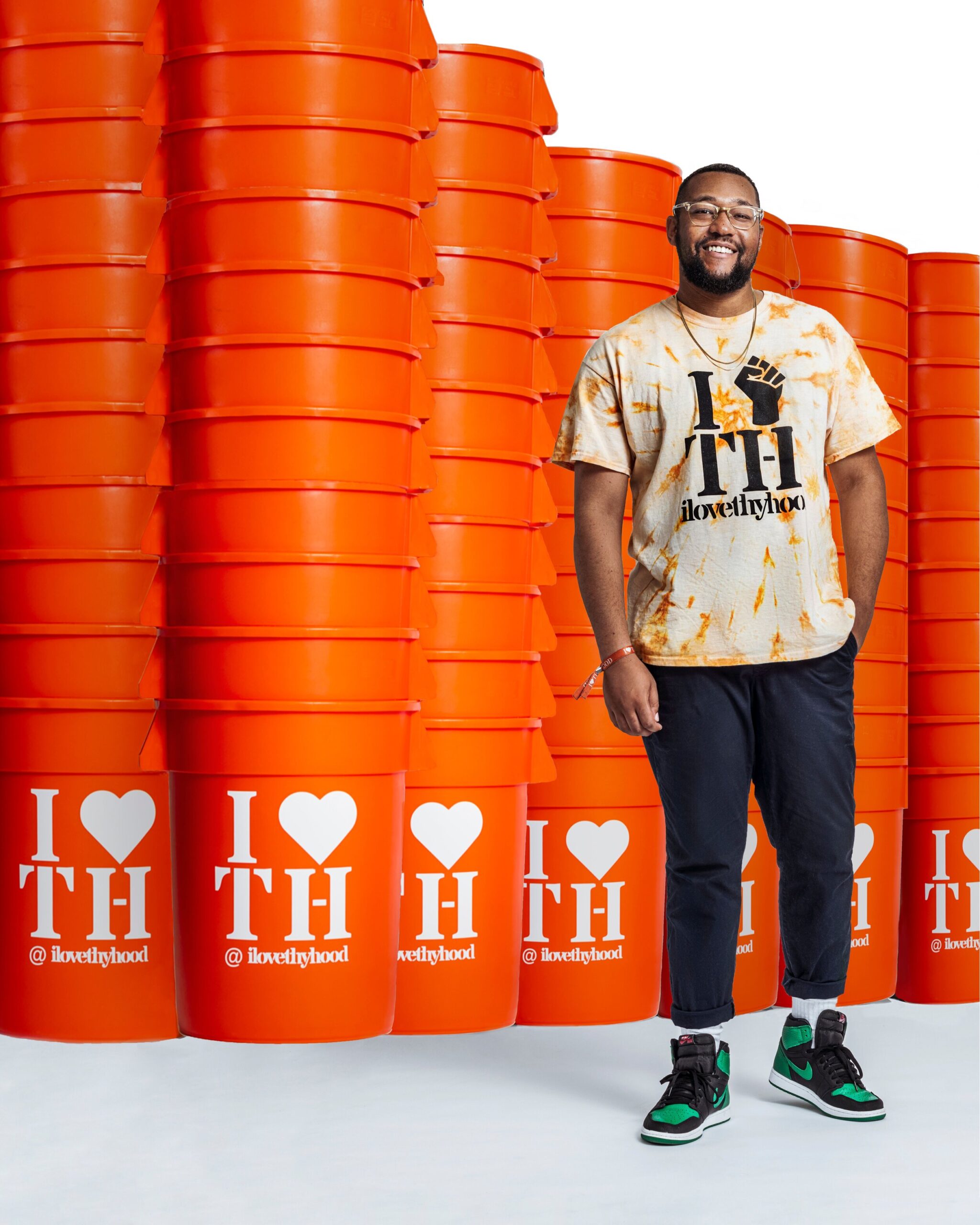
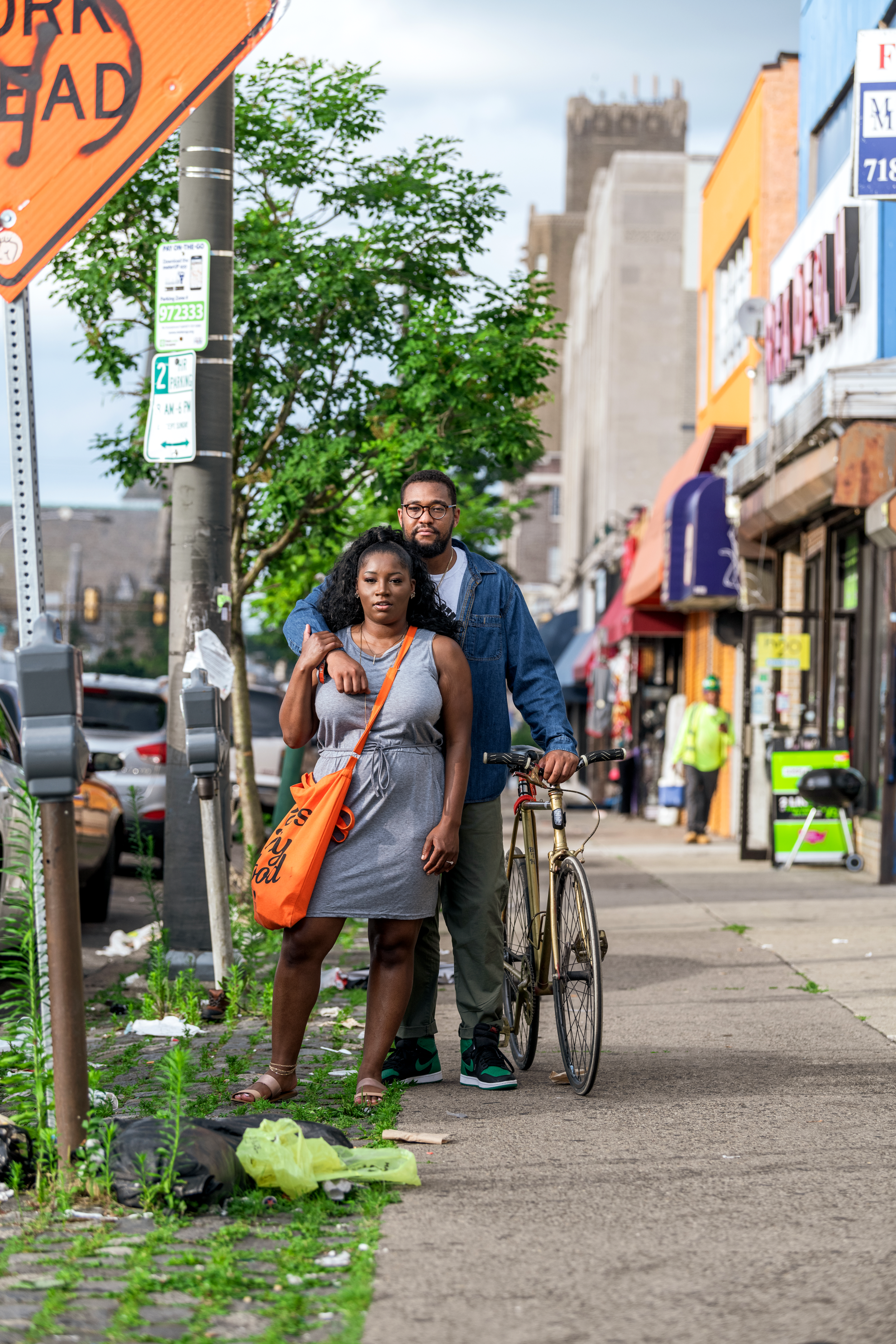
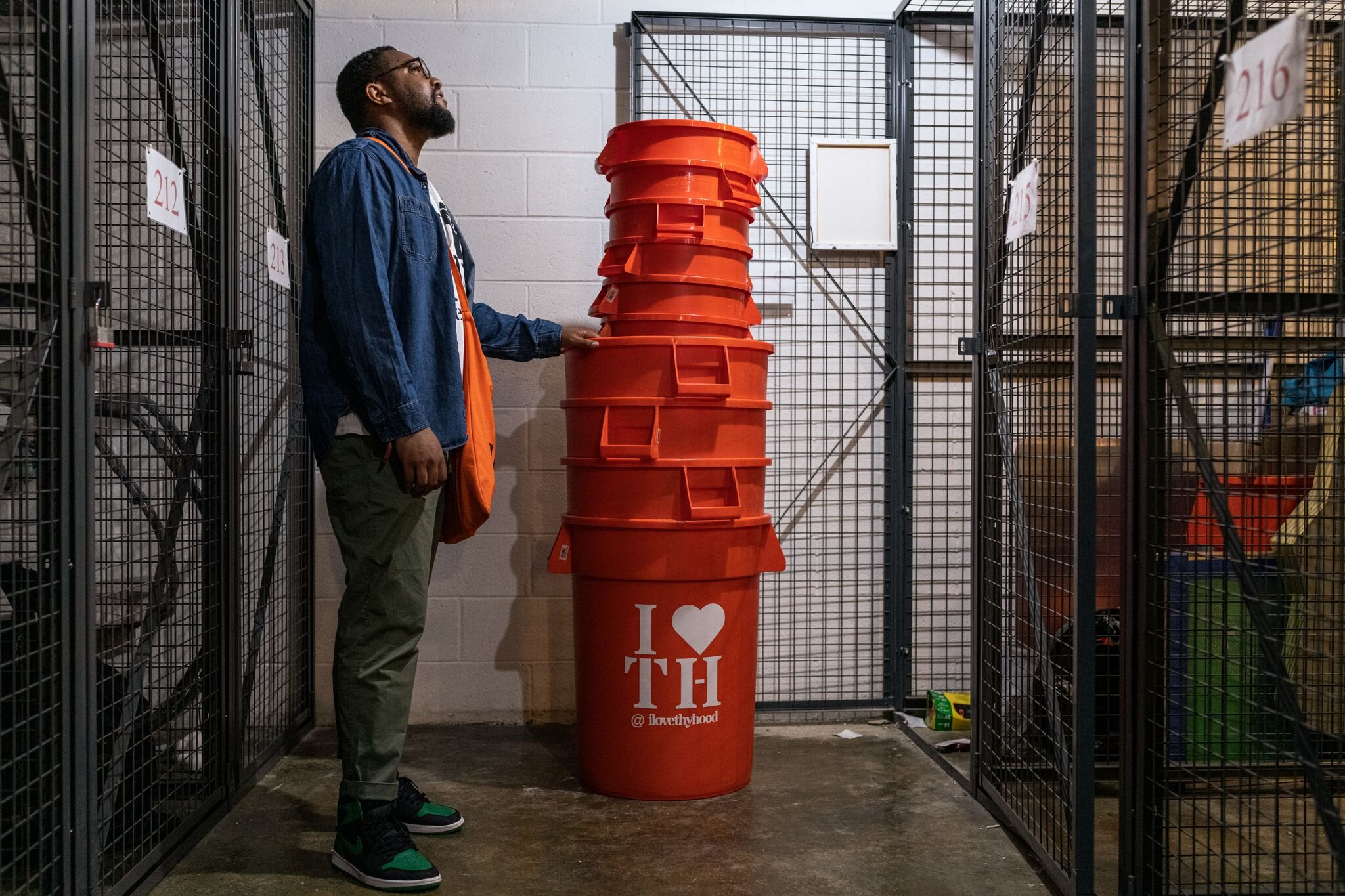
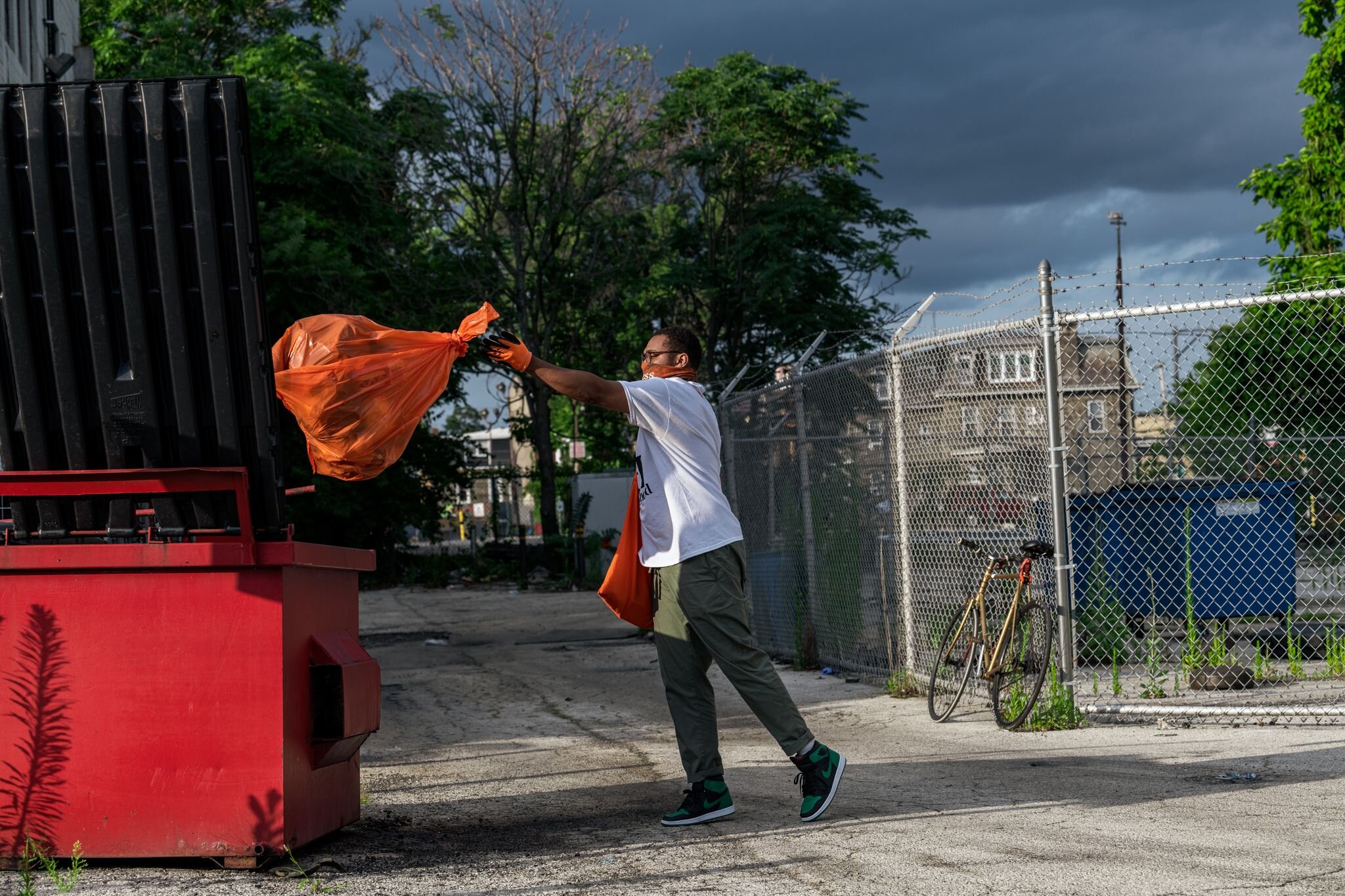
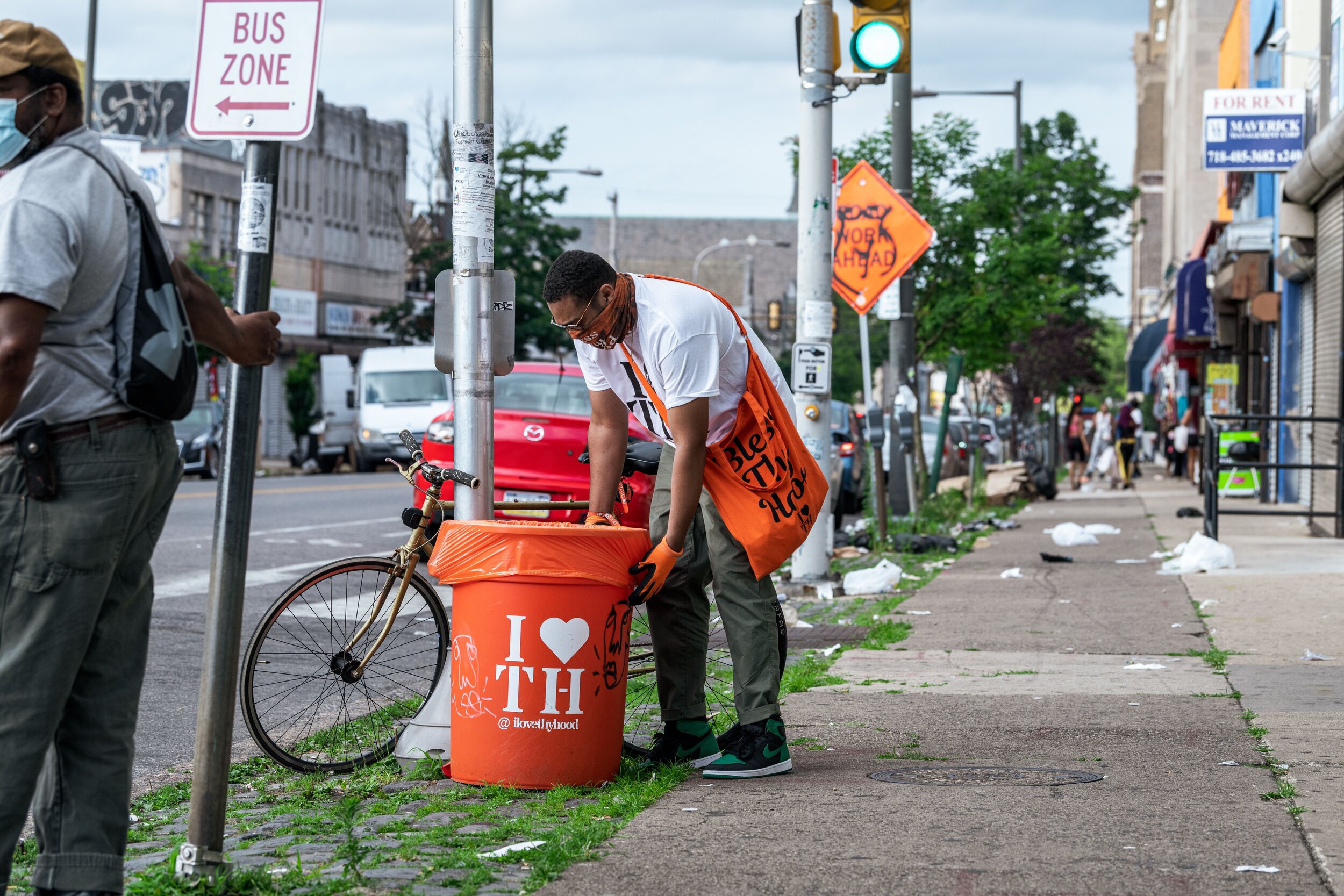
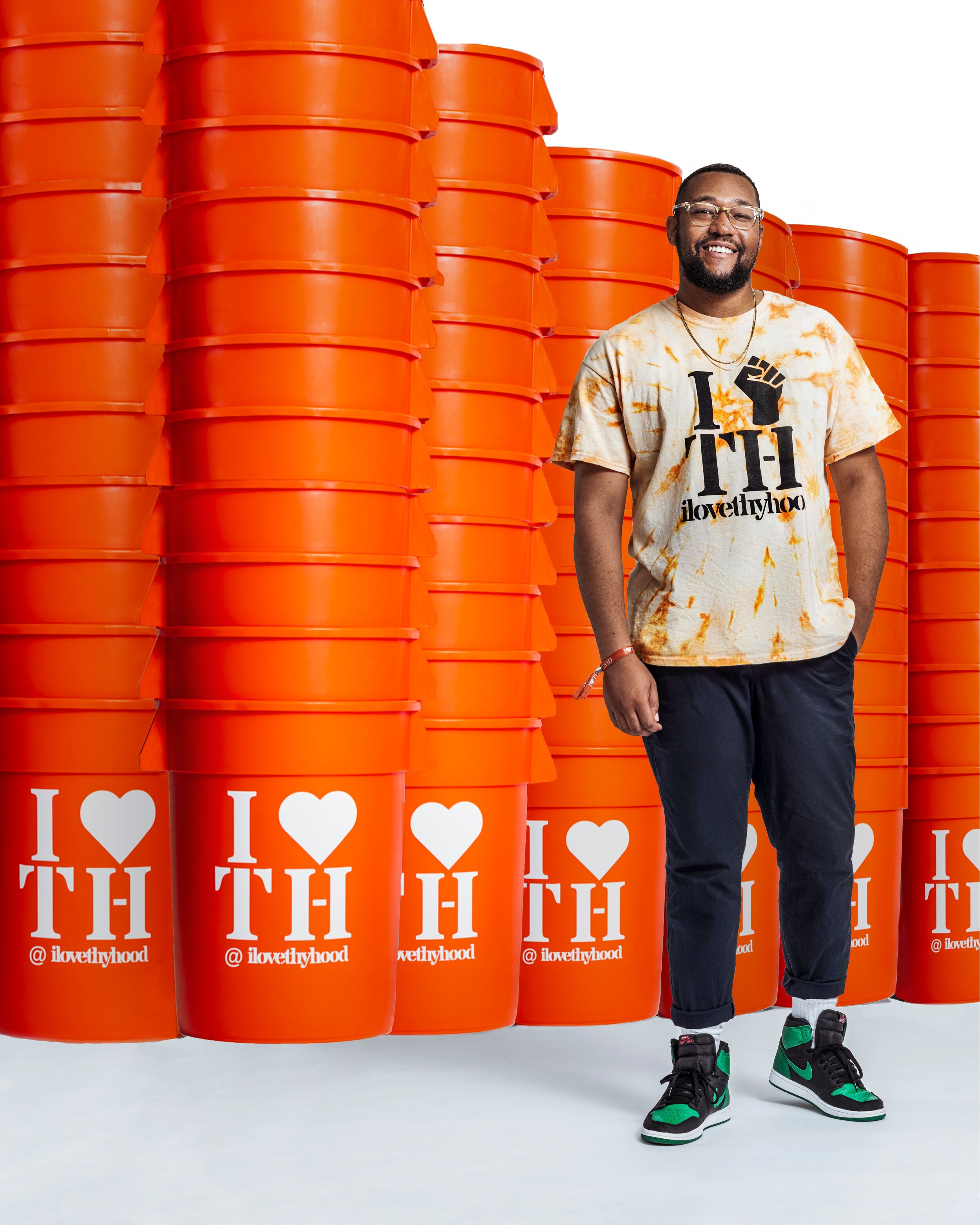
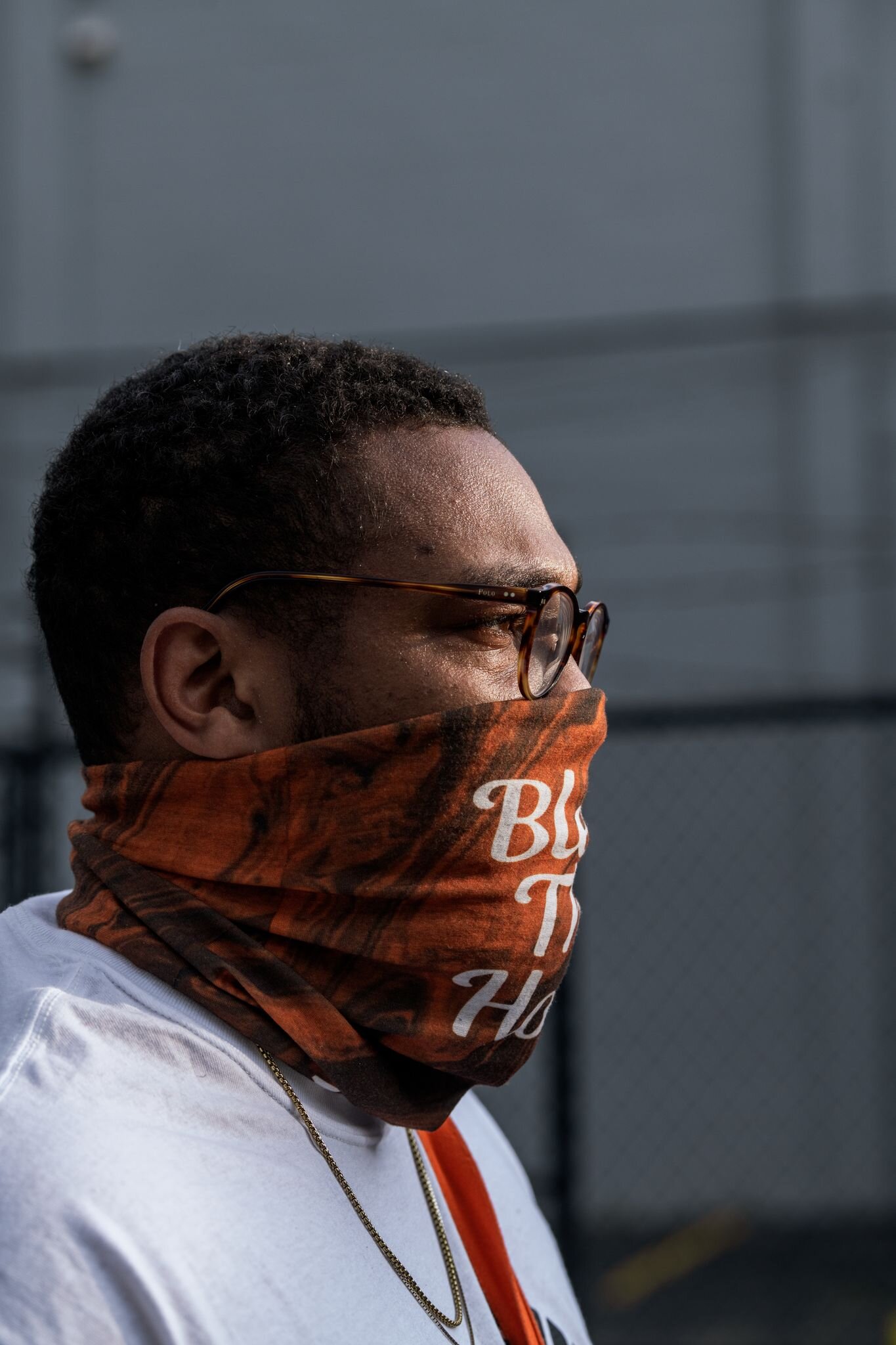
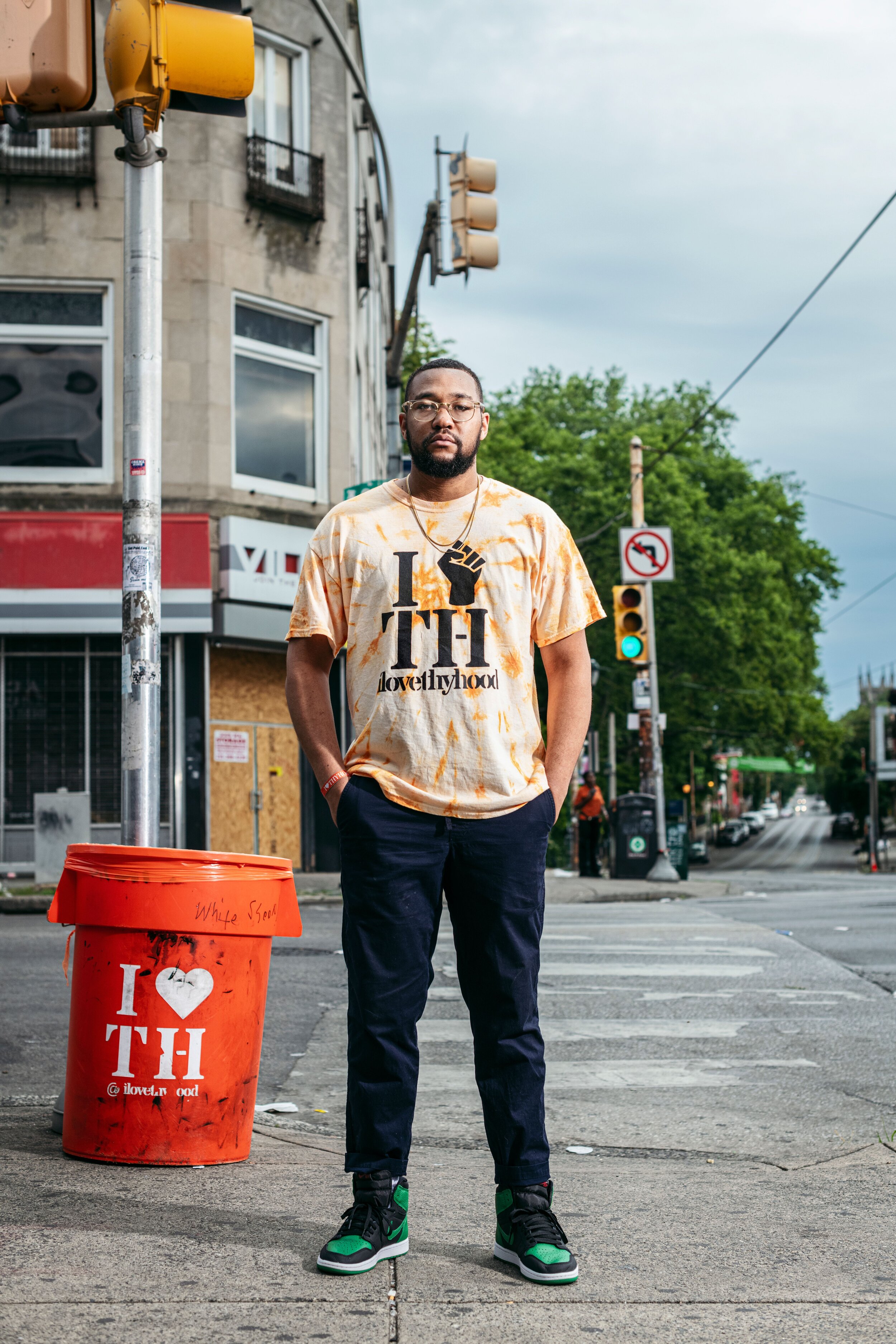
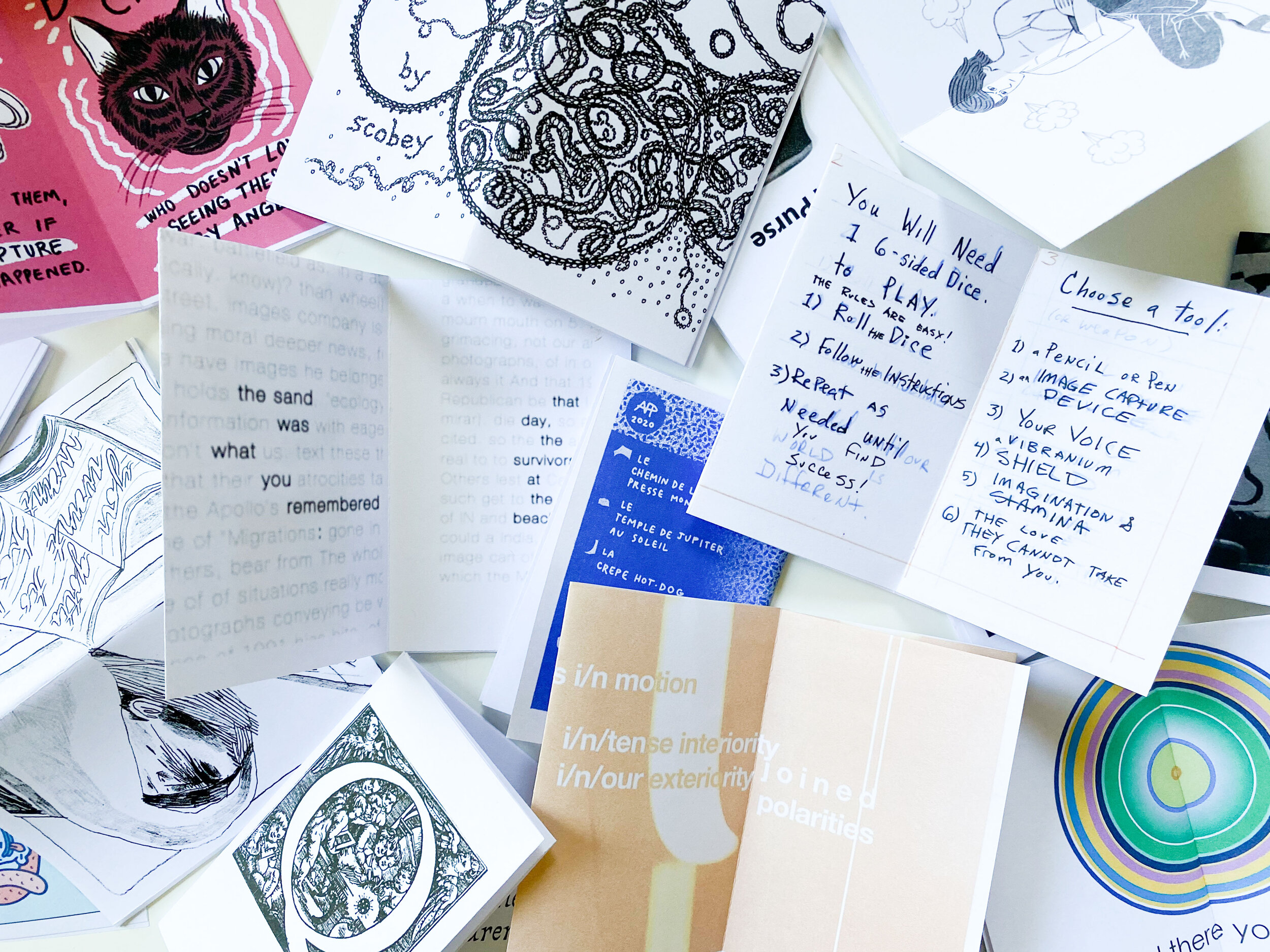

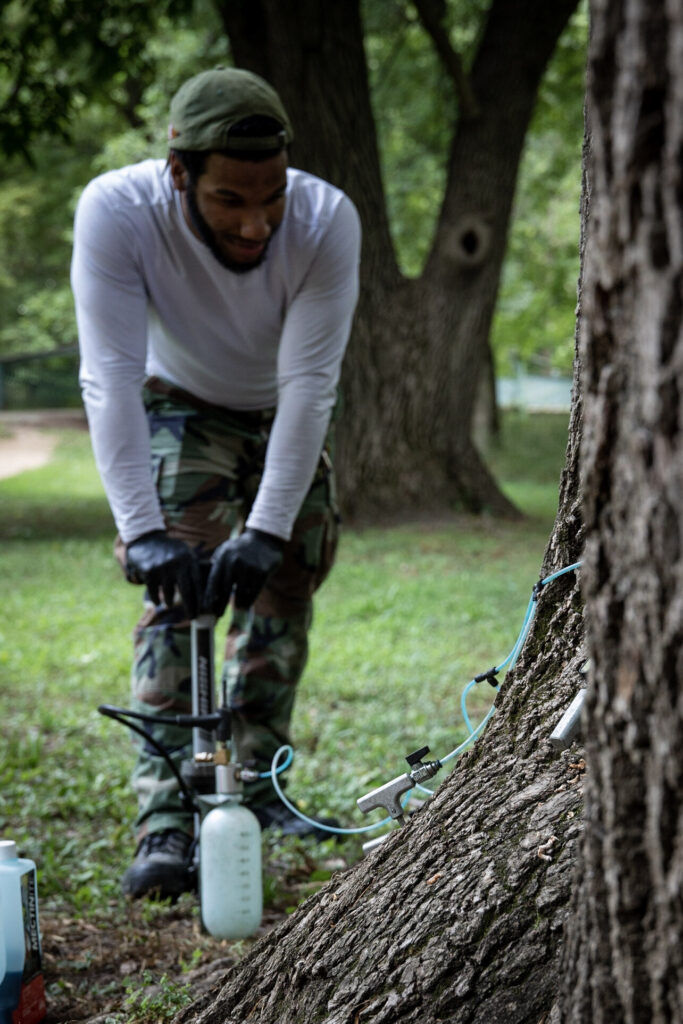


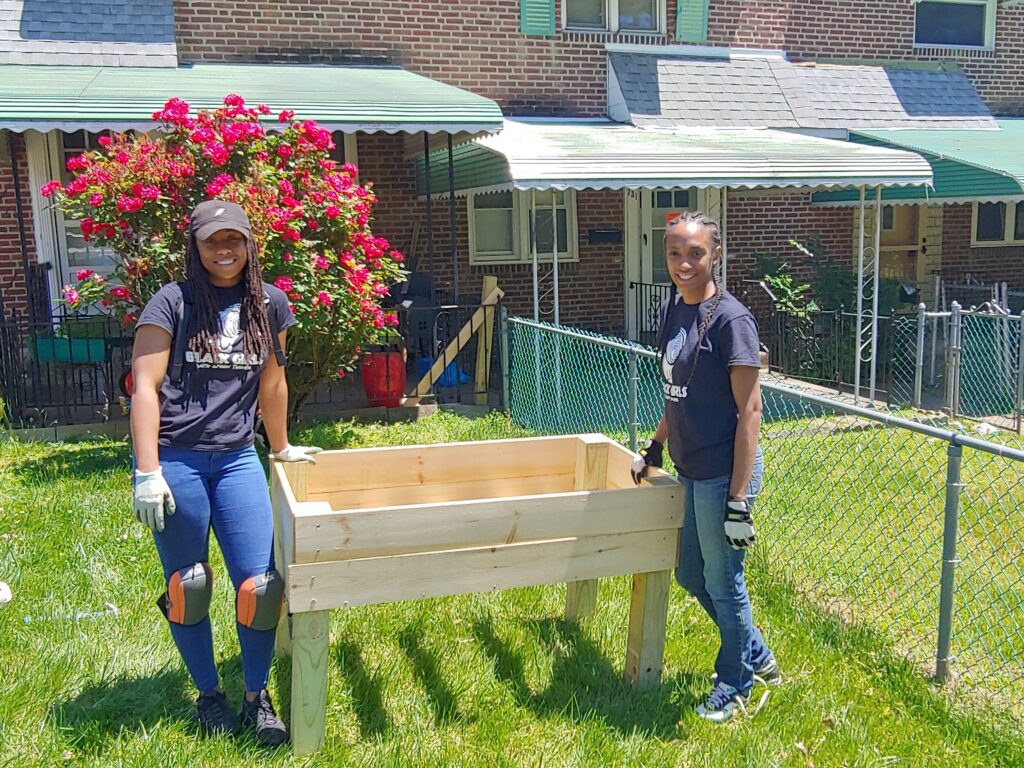
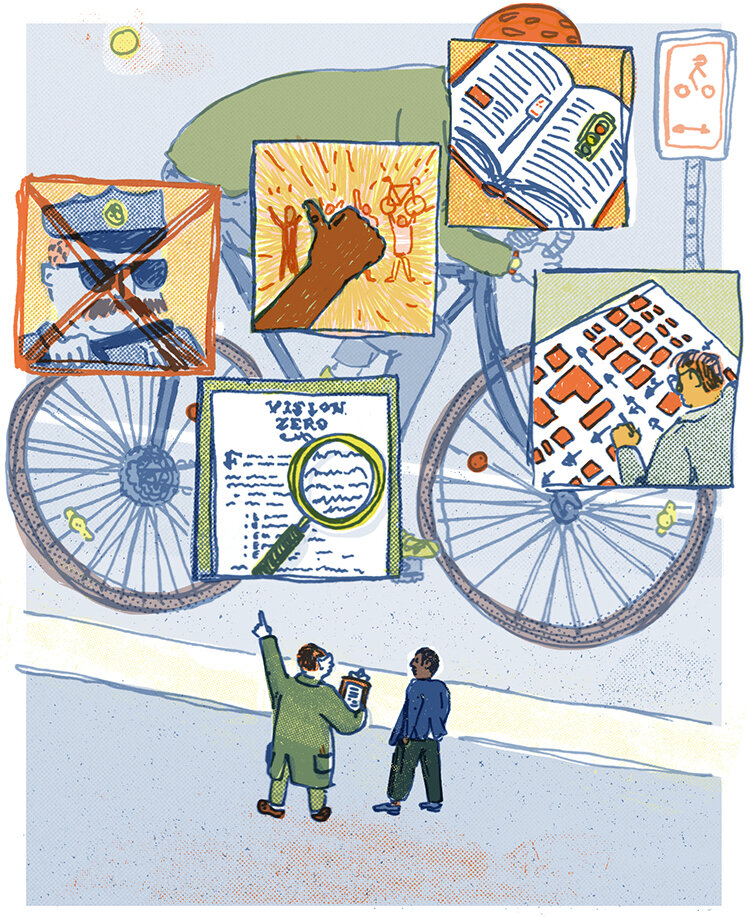
Kudos to Matthew George for initiating this “stop littering” effort in Germantown where I have lived for 40 years. Thanks also to Bria Howard. Littering and trash has been an intractable problem in our community for decades. Every successful initiative like “I ❤️Thy Hood” is a piece of the puzzle for ultimately conquering this serious quality of life and environmental issue. Thank you both!!!
This is an awesome story. Congrats Matthew George & Bria Howard you are a great example of "don’t just complain about it be about it". You saw that there was a problem and you helped find a solution for where you live and then took that same solution to help others. Not only that but now you are educating our youth which is our future. "Once we know better we should do better", Maya Angelo.
Kudos
Thank you grid for sharing this story
This is such a small step, yet very important. The way we look, the way our homes and streets look, helps form the way we look at ourselves and our community. America’s crisis is so crushing right now, that any rays of light are to be celebrated. Shine on !!